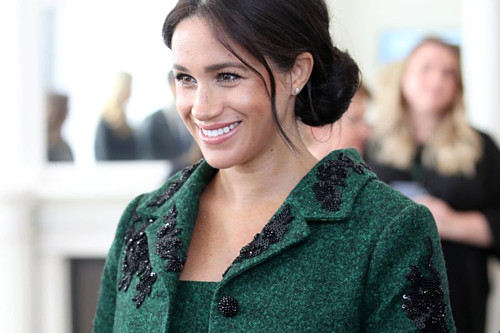Home birth is chosen by many British royal princesses
The British royal Duchess of Sussex is said to have given birth at home instead of going to hospital like Princess Diana or Kate Middleton.
At 5:26 a.m. on May 6, local time, Prince Harry and his wife Meghan Markle welcomed their first son. The baby weighed 3.2 kg. Both mother and child are currently in good health.
Before the royal baby was born, many sources speculated that Meghan would give birth at home instead of going to the hospital like Princess Diana or Kate Middleton. Both the Duke and Duchess of Sussex took hypnosis classes and expressed hope that a team of midwives would help them "give birth". Prince Harry also spoke to the press outside the couple's home in Windsor, suggesting that Meghan had given birth at home.
However, the royal pregnant woman was more than a week past her due date, so it is not clear whether Meghan gave birth at home or in the hospital.
|
Meghan Markle, Duchess of Sussex, gave birth to her first child on May 6. Photo:Cheshire Live |
In fact, it is a tradition for the British Royal Family to give birth at home (including palaces and royal estates). Queen Elizabeth gave birth to Prince Charles, Prince Edward and Prince Andrew at Buckingham Palace. Princess Anne was born at Clarence House because Buckingham Palace was undergoing renovations at the time.
Typically, women who give birth at home will schedule a midwife, who is called in to help when labor begins. For members of the British Royal Family, at least one royal doctor will be on hand throughout labor.
Dr Sam Todd, who heads the home birth team at Birmingham Women's and Children's Hospital, said the benefits of the method were that it made women feel more comfortable and also meant they didn't have to leave their other children or interrupt their work to go to hospital.
According to the UK's Royal National Health Service, for low-risk pregnancies, women can choose their birth environment without worrying about safety. A 2011 study found that for second-time mothers, the difference in risk between home birth and hospital birth was negligible. For first-time mothers, home birth increased the risk of health problems for the baby slightly, but still below 1%.
However, home birth is not suitable for all women. Those at risk of complications should go to a hospital where a team of experts is available. Factors that increase the risk of pregnancy complications include obesity, being over 35 years old, high blood pressure, cardiovascular disease and fetal abnormalities. It is best to consult a doctor before deciding to give birth at home.
In the UK, home birth rates have fallen sharply over the past 50 years. In 2017, just 2.1% of women in England and Wales gave birth at home.
Mr. Todd commented that Meghan's home birth could help women realize they have many options.

